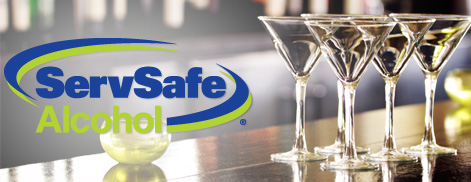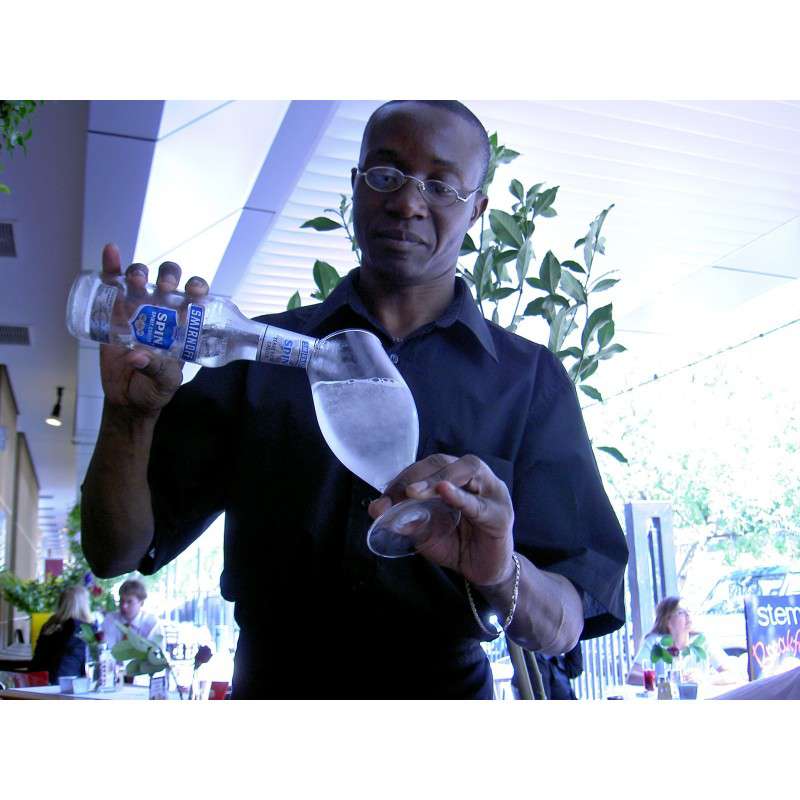Master Liable Alcohol Solution With Comprehensive Accreditation Programs
The mastery of liable alcohol service is not just a regulative need; it is a fundamental element that improves the online reputation and operational honesty of establishments within the hospitality sector. Comprehensive certification programs use indispensable understandings into local legislations, effective intervention strategies, and customer interaction methods. By buying these training campaigns, companies can cultivate a culture of obligation amongst their team, mitigating threats and enhancing customer fulfillment. Nevertheless, the course to effective application and its long-lasting advantages may not be as uncomplicated as it appears. What difficulties exist ahead for those who seek to elevate their service criteria?

Value of Responsible Alcohol Solution
Responsible alcohol solution is vital to promoting public wellness and safety in facilities that serve alcoholic drinks. It encompasses a variety of practices created to avoid the overconsumption of alcohol, minimize the threat of alcohol-related damage, and ensure a risk-free setting for patrons and personnel alike. By promoting accountable solution criteria, establishments can alleviate possible events of drunkenness, which might result in mishaps, physical violence, or other unfavorable results.
Furthermore, responsible alcohol solution boosts the overall customer experience. Customers are most likely to return to establishments that prioritize their security and health. This commitment promotes a favorable reputation, motivating word-of-mouth recommendations and repeat organization. In addition, establishments that abide by responsible solution practices frequently experience lower insurance premiums and decreased legal obligations.
In addition, applying liable alcohol solution methods aligns with broader public health initiatives focused on reducing material misuse and promoting community health. This aggressive strategy not only shields individual clients however also contributes to a much healthier society. Ultimately, responsible alcohol solution is not simply a legal obligation; it stands for an honest commitment to the health of clients and the community at huge.
Key Elements of Accreditation Programs
Certification programs for accountable alcohol solution usually incorporate a number of vital components created to equip personnel with the necessary skills and expertise to serve alcohol safely. These programs usually include extensive training on regional and state alcohol regulations, ensuring that participants recognize their lawful responsibilities and the repercussions of stopping working to conform.
One more essential part is the recognition of signs of intoxication - servsafe food handlers card. Staff are trained to acknowledge behavioral hints suggesting when a client might be over-served, allowing them to intervene appropriately
Furthermore, efficient communication methods are highlighted, showing team just how to involve with clients in a way that advertises accountable drinking. This consists of training in problem resolution strategies, permitting team to manage tight spots smoothly and expertly.
Furthermore, programs regularly include functional situations and role-playing workouts, providing participants with real-life instances to practice their abilities. Continuous education get more and sources are crucial for preserving knowledge and abilities over time, as guidelines and best practices advance. Together, these components develop a detailed framework that encourages personnel to foster a more secure drinking setting while decreasing obligation for facilities.
Benefits for Staff and Facilities
Staff and facilities alike reap substantial gain from joining accountable alcohol solution accreditation programs. For staff, continue reading this these programs improve knowledge and skills associated with alcohol service, outfitting them to determine indicators of intoxication and carry out effective treatment strategies. This training not only cultivates a sense of confidence amongst employees yet also advertises a culture of security and duty in the workplace.
For establishments, purchasing certification programs can cause lowered liability and less cases associated with over-serving. By making certain that staff are well-trained in accountable solution practices, establishments can alleviate threats associated with alcohol-related events, consequently shielding their credibility and monetary security. In addition, many jurisdictions provide rewards, such as reduced insurance policy costs, for licensed establishments.
In addition, applying certified practices can improve customer fulfillment and commitment. Customers are a lot more most likely to go back to locations that prioritize their security and wellness. Eventually, a dedication to liable alcohol solution not only grows a favorable atmosphere yet additionally improves the total functional performance of establishments, making it a clever financial investment for lasting success in the hospitality industry.
Usual Obstacles in Alcohol Service
Guaranteeing effective alcohol service is not without its challenges, also in facilities dedicated to accountable practices. One substantial obstacle is the requirement for staff to properly analyze customers' alcohol consumption degrees. servsafe food handlers card. This requires a keen understanding of just how different factors, such as food consumption, resistance, and individual distinctions, influence intoxication
In addition, the pressure to maximize sales can conflict with accountable service methods. Workers may deal with difficulties in rejecting service to inebriated individuals, particularly in social atmospheres where peer pressure and assumptions prevail.
An additional difficulty is remaining updated with neighborhood legislations and laws relating to alcohol solution. Conformity is vital, yet frequent modifications in regulation can produce complication check this and may cause inadvertent infractions.
Educating programs may not constantly cover the nuances of real-world situations, leaving staff ill-equipped to take care of complex circumstances. Irregular communication between monitoring and employees relating to expectations for accountable solution can better intensify these problems.
To browse these challenges successfully, facilities must promote a setting of assistance, emphasizing the importance of liable service while supplying the necessary devices and training for team to do well.
Actions to Acquire Certification
To get Responsible Alcohol Service Accreditation, candidates commonly start by researching the details demands mandated by their regional regulatory authorities. These needs may vary dramatically relying on the region, so it is important to familiarize oneself with the relevant laws and regulations.

After picking a program, applicants must complete the requisite training, which normally covers subjects such as identifying drunkenness, comprehending legal obligations, and applying strategies for accountable service. Participants ought to proactively engage with the material, as this expertise is important for efficient alcohol service.

Complying with training, prospects typically take an evaluation to analyze their understanding of the material. Successful completion of this evaluation causes qualification.
Conclusion
To conclude, mastering accountable alcohol service with detailed certification programs is vital for promoting security and improving client experiences within the friendliness market. By furnishing personnel with the needed understanding and abilities, establishments not just mitigate risks associated with overconsumption and lawful responsibilities yet additionally grow a society of obligation. This commitment to responsible solution ultimately leads to increased consumer commitment and functional success, strengthening the significance of ongoing training and adherence to alcohol solution criteria.